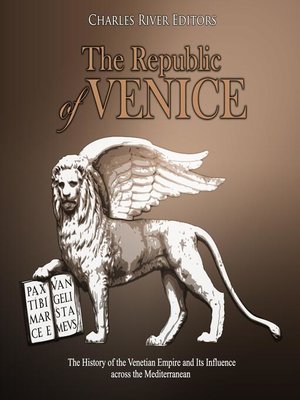The Republic of Venice
audiobook (Unabridged) ∣ The History of the Venetian Empire and Its Influence across the Mediterranean
By Charles River Editors

Sign up to save your library
With an OverDrive account, you can save your favorite libraries for at-a-glance information about availability. Find out more about OverDrive accounts.
Find this title in Libby, the library reading app by OverDrive.



Search for a digital library with this title
Title found at these libraries:
| Library Name | Distance |
|---|---|
| Loading... |
"As in the Arsenal of the Venetians
Boils in winter the tenacious pitch
To smear their unsound vessels over again
For sail they cannot; and instead thereof
One makes his vessel new, and one recaulks
The ribs of that which many a voyage has made
One hammers at the prow, one at the stern
This one makes oars and that one cordage twists
Another mends the mainsail and the mizzen..." – Dante's Inferno
The mystical floating city of Venice has inspired awe for generations, and it continues to be one of the most visited European cities for good reason. Tourists are drawn to the stunning blend of classical, Gothic, and Renaissance-inspired architecture across the picturesque towns and villages, the charming open-air markets, the mouthwatering traditional cuisine, and of course, the famous gondolas drifting down the twinkling blue waters. While these gondolas, along with the time-honored models of the Venetian vessels docked in the harbors, are one of the city's most defining landmarks, their beginnings are shrouded in a more obscure part of Venetian history.
To the first settlers of the unpromising, marshy islands of Venice in the 5th century BCE, it appeared as if any attempt at civilization was doomed to fail. Yet, even with the cards stacked against them, the artful inhabitants mastered the unlivable terrain and slowly pieced together a society that would put the small, unassuming city right on the map. In time, the city evolved into the most powerful maritime empire in all of Europe.
Founded in the wake of the decline of the Roman Empire, the Republic of Venice lasted for more than a thousand years, from 697-1797, and in order to understand its singular position in world history, it is necessary to first note its geographical positioning and its topographical make-up: Located in northeastern Italy at the head of the Adriatic, the city is made up of 120 islands that are connected by 430 bridges that cross over 170 canals, referred to as a "rio" or plural "rii" (Italian for river). As a maritime power, the interests of Venice once reached all the way to Asia, which allowed it to form an important crossroads within the Eastern Mediterranean, in terms of trade. In Venice, a vast array of products (raw materials, spices, cloth) came all the way from North Africa, Russia, and India and were exchanged for the goods and wealth of Europe."
Aside from the sheer size of the Venetian Empire and its long duration, it is no exaggeration to say that Venice was a city-state like no other in the world. Since it was not surrounded by an extensive rural area, it could not simply live off the bounty of the land, as others commonly did. Instead, the Venetians were forced to rely solely upon their entrepreneurial trade and their ingenuity; these essential collective characteristics contributed in no small way to the success of the city. In fact, this lack of dependence on a rural area ended up being a significant advantage because it ensured the city needed to develop many of the characteristics of an industrial revolution several centuries before the actual Industrial Revolution began in Britain. Moreover, in order to handle (and multiply) its bountiful financial prosperity, the Venetian Republic also invented one of the earliest banking systems in the world, and while the Tuscan city of Florence is usually referred to as the Athens of Renaissance Italy thanks to its position at the center of learning, art, and culture, some scholars would argue that Venice has a far better claim to that prestigious mantle.
The Republic of Venice: The History of the Venetian Empire and Its Influence across the Mediterranean...







